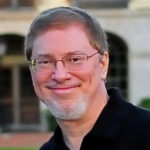“Age is just a number” and “You’re only as old as you feel.” Well, I don’t know about that, but there is some advice that stayed with me when it comes to comments about age. A long time ago, I read an excerpt in a magazine from a book written by twin sisters who also happened to be 100 years old. (I don’t recall the title, sorry.) Their wisdom was amazing, but one piece of information stood out to me. The message advised that no matter how old (in the literal sense) you get, you never think you’re as old as you really are. This is an interesting observation they share that you may not pay attention to unless you stop to think about it.
Now, this insight is coming from twin centenarians, I have to believe they know what they’re talking about. If I live to be 100, I’d like to think I’ve learned some important things along the way. The older I get, the more truthful their observation becomes; as such, I respect their opinions.
The idea that your chronological age says you’re one thing, and your mind naturally envisions you as another is something only an older person can appreciate. I don’t remember precisely, but I’m betting that I probably fell for this when I was in my 30s and 40s as well. After all, I liked the same music artists as 20-somethings, understood the latest styles, was open-minded, educated, technology literate (within reason) and stayed abreast of current events and trends. Because of this, my mental image of myself appeared younger, some days more than others – I wasn’t. For example, I might see myself as Tom Cruise hanging from a plane in true Mission Impossible fashion; when in reality, I’m more like Rodney Dangerfield as Thornton Melon on the diving board in “Back to School” (1986), minus the millions of dollars. You think you’re young, but everyone else sees you as you are.
Why do we do this to ourselves? What makes us naturally think this way? I’ve come upon a few different perspectives on the answer. One reason, scientists believe, is due to our internal self-image, the mental picture we have of our personality, capabilities and physical appearance; all impacted by our life experiences, achievements and social connections. It’s thought that our self-image may be slow to change as we age, leading us to think of ourselves as similar to the person we were in our younger years. Athletes often experience this phenomenon.
Another thought lies within our memories and experiences from youth, and how those appear more vivid and influential than our most recent versions. Childhood memories hold a special place in our hearts and help shape our perception of ourselves and our place in the world. Our current experiences, on the other hand, may not have the same emotional impact and consequently are less memorable, which leads us to feel out-of-sync with our current age.
A line from the Netflix series “Beef” says, “I read somewhere that time speeds up as you get older. Because when you’re a year old, that year is 100% of your perception of time. But, as you get older, that year is a smaller fraction of the time you’ve experienced.” The effect on perception, of that later moment in time being a smaller piece, is that it passes more quickly. Could this be why we don’t notice, and therefore, we don’t think we’re aging as much as we are?
This last theory has added leverage, in that, we see people do this all the time. It involves social comparisons and the role they play in our perception of age. In other words, the tendency to compare ourselves to others in our age group. Who hasn’t done this from time to time? The theory explains that if we perceive ourselves as more active, healthy or successful than our peers, we may feel younger than we actually are. On the other hand, if we compare ourselves to those who are younger or more accomplished, we may feel older and less relevant.
There’s little argument that our culture places a strong emphasis on youth and vitality. This naturally leads one to believe that aging is something to be avoided or feared. Perhaps this cultural messaging contributes to our subconscious desire to see ourselves as younger than our real age. The reality is it’s perfectly natural to want to feel young and vibrant, but one thing age and experience teaches us is the importance of embracing the natural aging process and appreciating the significance of the wisdom and experience that comes with it.
Though I’d like to feel like a 20-something again, I appreciate the many things I’ve learned and am still learning along the way. Although I have accumulated a few more tree rings underneath my bark, those rings have helped me develop a deeper understanding and perspective on things – a skill that’s proven to be quite beneficial in my profession.
Embrace the rings.
To comment and see more, visit theviewfrommysection.com.























